D.C. and Puerto Rico are not the same.
Blanket calls for D.C. and Puerto Rico statehood miss a critical difference: D.C. is the American capital. Puerto Rico is an American colony.
“D.C. and Puerto Rico should be states. Pass it on.”
With passage of the D.C. statehood bill in the House of Representatives last Friday, variations on this statement have been gaining traction as a liberal rallying cry. Because they are not states, neither D.C. nor Puerto Rico have voting representation in Congress. The votes of Puerto Rico’s 3.2 million citizens also do not count in U.S. presidential elections (thanks to a constitutional amendment, D.C. citizens have been able to vote for President since 1961). If Democrat-leaning D.C. and Puerto Rico were to become the 51st and 52nd states in the Union, that’d be a considerable boon for Democrats looking to reclaim control of the Senate and the Electoral College. Statehood proponents also make the point that all Americans “deserve” equal representation.
No matter how attractive these arguments might appear on the surface, the idea that Puerto Rico “deserves” to be a state, just the same as D.C., overlooks a critical difference between the two.
D.C. was established by the U.S. Constitution to serve as the nation’s capital in 1790. Puerto Rico was annexed by the United States in 1898 and has been subject to colonial rule ever since. While statehood may be appropriate for D.C., the same is not necessarily true for Puerto Rico.
The United States claimed Puerto Rico along with Guam, Cuba, and the Philippines as spoils of the Spanish American War. At that time, annexed territories on the continent were automatically placed on a “path to statehood.” The Constitution applied in full in these territories and their inhabitants were extended U.S citizenship and voting rights. Then, once territories were sufficiently “American” in character—meaning enough Native people had been exterminated or dispossessed and enough white people had settled there—the territories would be granted full statehood. Hawai’i, which was annexed the same year as Puerto Rico, but which already was home to a substantial class of white capitalists, was placed on the path to statehood the same as territories on the continent.
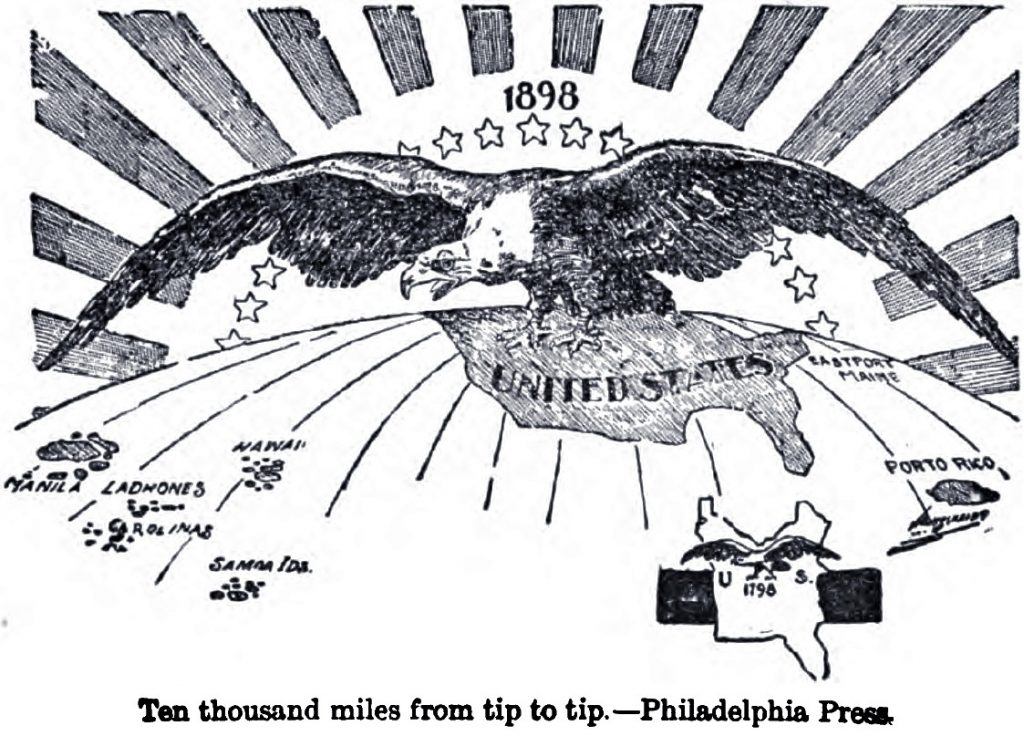
By contrast, from the moment the U.S. annexed Guam, the Philippines, Cuba, and Puerto Rico, statehood was out of the question. Racist conceptions of island peoples as inferior, savage, and strange foreclosed the possibility of statehood in the absence of white settler colonies. But white Americans did not want to move to these “primitive” islands. With statehood off the table, the question facing the United States became how to effectively maintain dominance over its strategically important new possessions without fully bringing them into the Union.
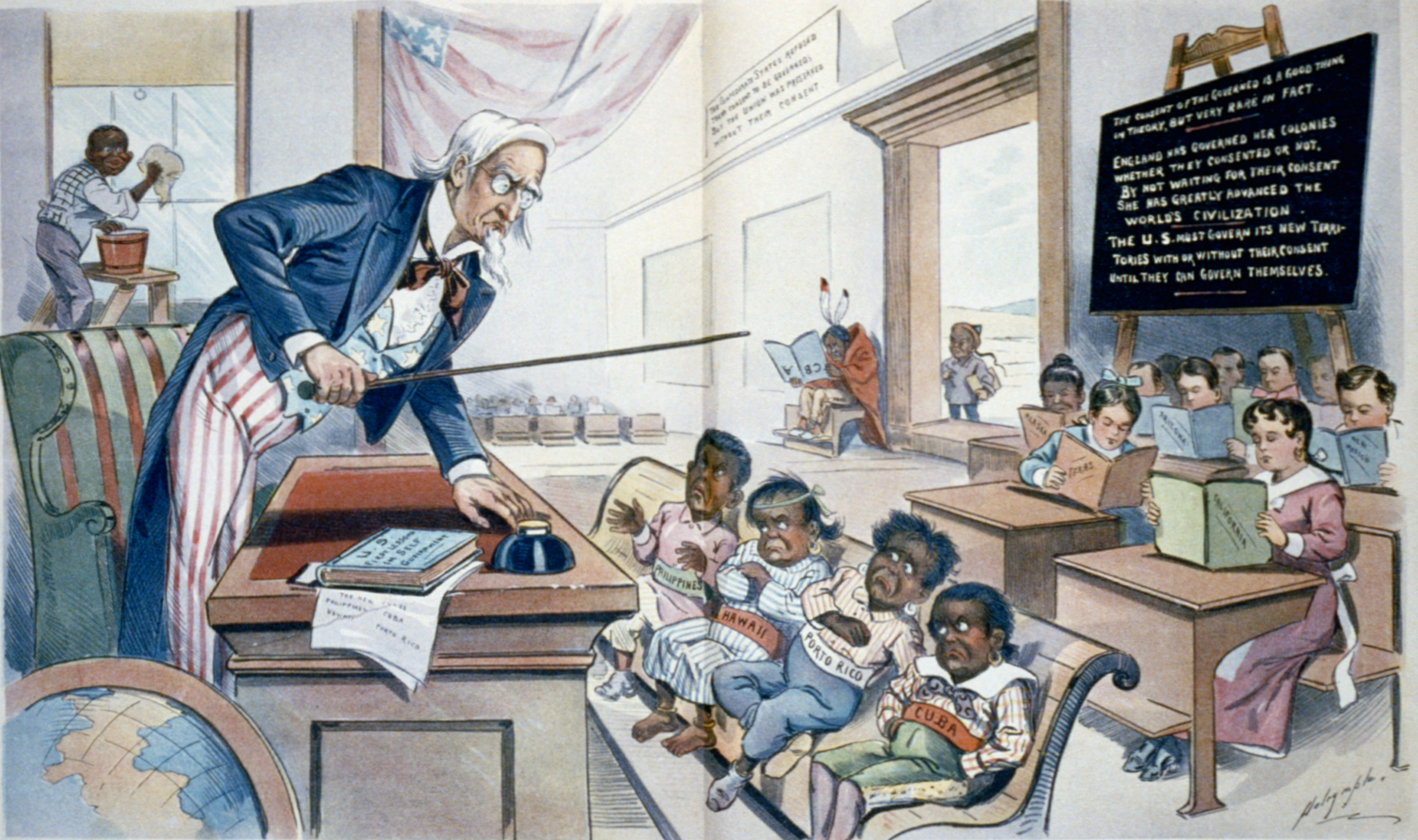
Ultimately, America’s “imperial problem” was solved by the Supreme Court in a series of blatantly racist decisions known as the Insular Cases.
In 1901, in the leading Insular Case of Downes v. Bidwell, the Court considered the question of whether the Constitution’s requirement that all taxes and duties be uniform “throughout the United States” applies in Puerto Rico. The Court decisively answered that no, the taxation provision—and the Constitution more generally—does not apply in Puerto Rico. In the Court’s view, applying the Constitution in Puerto Rico would lead to an absurd result: It would mean that territorial inhabitants, whether “savage or civilized” would be “entitled to all the rights, privileges and immunities of citizens.” This could not be. Clearly, the “alien races” of the territories did not deserve the benefits of “Anglo-Saxon principles of government.”
Based on this racist logic, the Court went on to set out what has come to be known as the doctrine of territorial incorporation. In short, the doctrine provides that it is up to Congress to decide whether and to what extent the Constitution applies in territories. If Congress chooses to “incorporate” a territory, like Hawai’i, the Constitution automatically applies in full. But in unincorporated territories, like Puerto Rico and Guam, people do not enjoy Constitutional protections unless and until Congress chooses to extend them.
Twenty years later, the Court qualified that territorial inhabitants are entitled to certain “fundamental rights,” but what exactly this means remains uncertain. What is clear is that these “fundamental rights” are something less than those enshrined in the Bill of Rights. For example, territorial inhabitants likely do not enjoy 14th Amendment birthright citizenship. Puerto Ricans and Guamanians are citizens because Congress has given them this status legislatively. But the people of American Samoa, another U.S. territory, are not citizens because Congress has never extended them this status (and many American Samoans feel they are better for it). And, of course, territorial inhabitants do not have the right to voting representation in Congress or the right to vote for their commander in chief.
Grounded in racist notions, all of these restrictions are a product of the territories’ colonial status. In the words of the Supreme Court, unincorporated territories are “appurtenant,” “belonging to but not a part of” the United States.
To this day, the racist doctrine announced in Downes v. Bidwell and its progeny has been upheld and defended by the Supreme Court and every presidential administration (yes, even Obama) as an appropriate framework for administering the territories. It was on the basis of this racist doctrine that, in 2016, the Supreme Court held that territories, unlike states (and even Indian tribes) have no independent sovereignty. Rather, they are legally considered to be under the total dominion of the federal government.

The Court in Downes intimated that territories cannot be allowed to remain in this colonial limbo indefinitely. It would be a “violation of duty under the Constitution,” the Court explained, for the United States to “permanently hold territory which is not intended to be incorporated.” And yet, over 100 years later, this is precisely what the U.S. appears to be doing.
Though the Philippines and Cuba gained independence, Puerto Rico and Guam, along with the other inhabited territories—American Samoa (annexed 1901), the Virgin Islands (annexed 1921), and the Commonwealth of the Northern Mariana Islands (administered by the U.S. as part of the Trust Territory of the Pacific Islands from 1946 until it became an unincorporated territory in 1978)—continue to exist in their liminal, unincorporated space: Unable to exercise sovereignty yet unrepresented in the government of their colonizer. Exploited to assert American military and economic hegemony, yet largely outside the consciousness of the general American public. “Foreign in a domestic sense.”
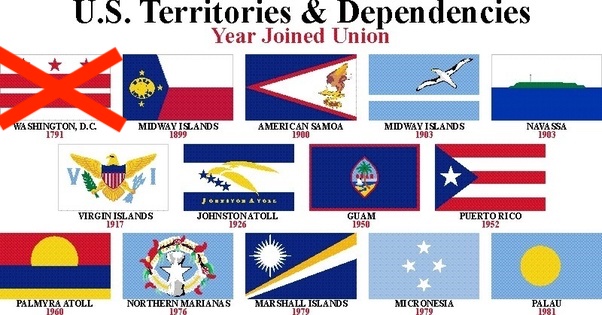
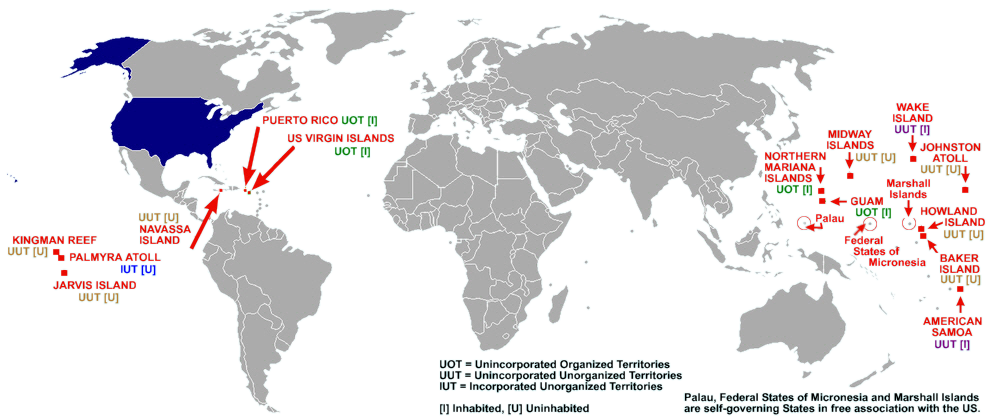
I’ll say it again. Puerto Rico is not like D.C. Puerto Rico is a colony.
The remedy to colonization is not statehood, but self-determination—the right to be free from alien domination. Recognized as a jus cogens norm of international law, self-determination is a prerequisite to the full enjoyment of all other human rights. Self-determination means allowing the people of Puerto Rico, and of each of the other territories, to decolonize as they see fit—whether by seeking statehood, independence, or some other status.
In no case should statehood be treated as the only just or appropriate outcome for the territories. Look at the fate of Hawai’i. Statehood was foisted on the Kingdom of Hawai’i against the majority will and in service of a white, capitalist oligarchy. To this day, the incorporation of Hawai’i into the Union makes pursuit of native Hawai’ian decolonization nearly impossible.
Claims that Puerto Rico “deserves” statehood ignores the reality that it is a U.S. colony and that Puerto Ricans did not ask to be a “part” of this country (empire) in the first place. And using Puerto Rico as a political chip to be cashed in for more democratic votes—particularly without understanding the territory’s status—is more of the same colonial violence. Puerto Rico should not be made into a state in service of an American political party, or even in service of American democracy. If Puerto Rico becomes a state, it should be because Puerto Ricans say so.
In this moment, when the movement to dismantle systemic injustice seems to be at a zenith, perhaps we should try a new rallying cry:
“Puerto Rico, Guam, American Samoa, the Virgin Islands, and the Commonwealth of the Northern Mariana Islands should be liberated from colonial rule. Pass it on.”
Reader Comments
15 Replies to “D.C. and Puerto Rico are not the same.”
Comments are closed.




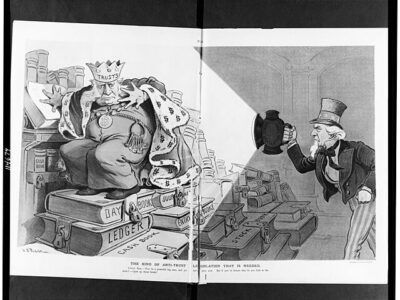


Excelent analysis!
Should the United States return the island back to Spain???
You’ve taken a few liberties in some of your arguments that should be addressed.
Many people in Puerto Rico supported U.S. intervention as a way to be liberated from Spanish colonial rule.
Afterwards, Puerto Rico held elections and plebiscites. In 1951 Puerto Ricans validated the Constitution and their relationship with the U.S. by voting for it.
In 1967 the current status was validated by an overwhelming majority of voters in Puerto Rico. Puerto Rico has had subsequent votes in 1993, 1998, 2012 and 2017 with varying results of supporting the current status or supporting Statehood.
The issue right now is whether Puerto Ricans want to continue under the current political status or whether they want to become a state. Those two options make over 90% of the votes. Independence rarely goes over 3%. Even Free Association is something that hasn’t garnered much support.
Puerto Rico already has self-determination. Pushing for something that already exist is disrespectful to the large majorites in Puerto Rico that support a strong relationship with the United States and value our U.S. Citizenship.
Hi David!
Thanks for your comment!
To be clear I am not pushing for independence or taking any opinion on what status Puerto Rico ought to pursue. Rather, I am saying that Puerto Ricans should have the right to choose their own status–whether that be statehood, independence, or free association. In doing so, I’m pushing back on arguments that Puerto Rico should be made a state in order to increase democratic votes or to make the electoral college more majoritarian. American interest in Puerto Rican statehood is beside the point – Puerto Rico’s decolonization should not be in service of American political interests.
Also, it is not accurate to say that Puerto Rico is already self-determining.
You are right that a vocal contingent of people in Puerto Rico were supportive of US annexation in 1898, under the belief that Puerto Rico would be placed on the path to statehood. However, the people who were interested in this were a minority class consisting of wealthy white settlers of Spanish descent (I say minority in terms of population, not in terms of power). This cohort obviously did not represent most Puerto Ricans. Moreover, their ambitions for statehood were stymied by the reality that white supremacist politicians in the continental United States could not abide the idea of incorporating a territory that had such a large non-white population (in the words of the Supreme Court, a territory consisting of “savage” “alien races” unaccustomed to “Anglo-Saxon principles of government.”)
Puerto Ricans were made US citizens in 1917 with passage of the federal Jones Act (that is, statutory citizens; Puerto Rican citizenship is not guaranteed by the US Constitution). The same act made English the official language of Puerto Rico, even though most Puerto Ricans spoke Spanish, and set up a territorial government. Puerto Ricans had not asked for citizenship or any of these other changes. Rather, they were unilaterally extended by Congress.
Then, as you note, in 1951 Puerto Rico enacted its own territorial constitution and was granted commonwealth status. This means Puerto Rico is self-governing. However, self-governance is not the same as self-determination. The Puerto Rican constitution, and all other Puerto Rican governance decisions, court decisions, and laws, are subject to the plenary power of Congress–meaning Congress can alter or invalidate them at will. This absolute power the federal government exercises over the territory is particularly troubling because Puerto Rico does not have voting representation in Congress. Moreover, the complete dominion the federal government enjoys in Puerto Rico comes down to the fact that unlike states of the union or independent nations (or freely associated states, or even Indian tribes) Puerto Rico and the other unincorporated territories are not recognized as having sovereignty.
While Puerto Rico remains in its liminal, unincorporated status, subject to the plenary power of Congress, and “belonging to but not part of the United States,” it necessarily remains under colonial domination. In other words, self-determination has not been realized.
The US has an obligation to effectuate Puerto Rico’s decolonization, both under international law (which admittedly holds little sway in the US) and arguably under the Supreme Court’s own precedent in Downes v. Bidwell, as I explain in the article. If Puerto Ricans choose statehood, Congress should effectuate that choice. However, to return to my original point, it is inappropriate for Americans in the states to be making arguments for Puerto Rico to be made a state in service of their political party or American democracy more generally. Puerto Rico should not be used as a pawn in American politics.
I’d also not that both the 1967 and 2017 referenda had very low voter turnout due to widespread boycotts of the votes, there were problems with ballot invalidation in 2012, and no other referendum has produced a majority outcome among voters. Hopefully the 2020 referendum will provide a clear answer, at which point the US should honor that choice accordingly.
I think this Op-Ed by Professor Jacqueline N. Font-Guzmán is another great source you might find illuminating:
https://www.washingtonpost.com/opinions/puerto-ricans-are-hardly-us-citizens-they-are-colonial-subjects/2017/12/13/c0f1c700-de9f-11e7-89e8-edec16379010_story.html
And for more on the history I’d suggest you check out Professor Sam Erman’s book: Almost Citizens: Puerto Rico, the U.S. Constitution, and Empire
https://www.cambridge.org/core/books/almost-citizens/D89DFE54DFC9850610BEC13FC22B0C76
I am Puerto Rican myself and I am fully aware of the history. I still don’t agree with your position.
Yes, Puerto Ricans was given U.S. Citizenship in 1917. But they were also given the option to renounce it. Almost no one did. So, they freely accepted it.
Puerto Ricans have free elections where they can choose their status preference. Saying Puerto Ricans need self-determination before they can choose a status is to minimize the role of Puerto Rican voters.
Yes, Congress has plenary powers over Puerto Rico. But Puerto Rico has ratified the current status in an act of self-determination and this was recognized by the U.N. in Resolution 748 in 1953.
The turnout for the 1967 plebiscite was at 65%. There really wasn’t a widespread boycott. The Republican Statehood Party wanted to boycott it. But most people that favored statehood wanted to participate. Thus, the New Progressive Party was born and the plebiscite had a high participation. Only the pro-independence Puerto Ricans boycotted. But it doesn’t matter because there weren’t that many in the first place.
While I agree that the 2012 referendum has it issue, it wasn’t a ballot invalidation problem. The issue was that there was no outright majority for the preferences.
So, Puerto Rico having self-determination is not an issue. What is on issue is whether Puerto Ricans want to continue with the current status or choose statehood.
I think we are saying the same thing!
Puerto Ricans voting to express their choice of status (be it statehood or another status) is an act of self-determination. I am not saying self-determination is an antecedent to voting, but rather the self-determination expressed by Puerto Ricans through voting should be honored by the US government. Congress honoring that choice would fulfill the US duty to decolonize and recognize Puerto Rican self-determination, while failure to acknowledge or effectuate the expressed will of the Puerto Rican people is a violation of the right to self-determination.
Moreover, a change in Puerto Rico’s status should be in response to the expressed will of Puerto Rican people, not in response to US electoral politics, which has been the most common form of argument I’ve seen recently: that Puerto Rico should be a state to garner more democratic votes, or that Puerto Rico should be a state to improve representative democracy. But that type of argument erases Puerto Rican’s right to choose their own status and control their own destiny (i.e., the right to self-determination).
Basically, my point is that the right of Puerto Ricans to decide their own future should be recognized in actual fact.
I would also say that continued federal plenary power over Puerto Rico is a de facto violation of the right to self-determination, though I know we disagree on that point. Although there have been formal declarations of self-determination and self-governance, the fact remain that the U.S. does not recognize Puerto Rican sovereignty and has total power to veto any Puerto Rican governmental act (as SCOTUS clarified in 2016). This practically limits the ability of the territory to control its own destiny. That said, as you note, if Puerto Ricans vote to maintain this status, then that decision ought to be honored.
Here are some additional readings on this point:
https://www.theatlantic.com/politics/archive/2016/06/american-empire/487232/
https://socialchangenyu.com/review/at-rock-bottom-puerto-ricos-crises-and-self-determination/
Anyway, it is a tricky issue and I really thank you for your engagement!
Few Puerto Rican’s supported statehood on tha basis of a looming invasion. Puerto Rico was not a Colony of Spain but one of it’s overseas provinces, it hat Senators in the Spanish Parliament since 1871 and Delegates sin 1809, all with full voting rights, unlike know, funny how some talk about “American Democracy “ something that has been denied to residents of US Territories since day one of their invasion. Puerto Rico was also Spain’s first Autonomy now all of Spain is divided in autonomic regions. Puerto Rico was part of Spanish history for more than 400 years, independence movement were unpopular and failed, statehood followers were a few and deceived by the US. and the hard reality of having lost a full fledged democratic autonomous province to become stepped on, US colony.
Your analysis overlooks that Puerto Rico was on its way to independence from Spain when the Spanish American War broke out. Most Puerto Ricans thought that the war would speed up the process of independence and thus welcomed intervention by the United States. The results of the plebiscite votesbare misleading in that most of the island doesn’t even bother to vote because they see it as a waste of time. All of this does not excuse the shameful treatment of Puerto Rico throughout its history with the United States and that is a major factor in the broader picture. The island cannot make critical decisions to help themselves which is what the pro statehood movement pushes as its agenda, fear that island can’t survive without the United States. Granted sovereignty they would be in a better position to make such an important decision as statehood or independence. That is what the article is referring to.
Not all points of view were represented in 1917, 1952, or 1967. The U.S. systematically repressed and suppressed all talk of independence, and they imprisoned or killed most of the leaders of the Nationalist Party. People buried their desires to be a sovereign nation because they were smart enough to understand that the U.S. would never give up a territory that was and continues to be a major consumer of American goods. Not to mention the geo-political and military role the island has played over the last 120 years. As an example, Gov. Muñoz Marín passed a law in 1948 – known as Law 53, the Law of the Muzzle or Ley de la Mordaza – which made it a felony to sing La Borinqueña, talk about independence, criticize the US government, or own a Puerto Rican flag. We have never been free to express our desires and now we are in debt for 10s of billions of dollars complicating the issue even further.
Under the authority of Law 53, Muñoz Marín demanded the widespread arrest of “suspected” Nationalists.
Excellent article. Puerto Rico was a province of Spain separated by the US invasion of 1898. Puerto Rico has the right to decide if they want to reunify with their mother county which is Spain. The option of Reunification is a valid option for Puerto Rico, this option would allow the Island to recover its status as a spanish autonomous province and Puerto Ricans to recover their spanish citizenship.
the pdf will not download. how can I get the pdf of this article?
What are some situations in which the Bill of Rights would not apply in a territory? The listed example, the 14th Amendment’s birthright citizenship guarantee, is not actually from the Bill of Rights (although I am aware that this amendment and the Bill of Rights are closely related).
You would think that if permanently holding overseas colonies were not in-American, then nothing could be called un-American.
Hi Autumn!! I am also a Puerto Rican living in the island and I’m totally in agreement with you. While reading some of the comments here by my fellow Puerto Ricans I kind of feel like not everyone is able to understand your point as some of us do. I wanted to thank you for your writing and at the same time to remind you that a lot of our people may not be able to understand the truth in what your saying, due in part for their lack of education and knowledge of politics and such. But, Thank you for taking the time and doing your research. It has been very clarifying and has made me aware of some very important issues about the position of US and PR. Thanks Again.!!!
Hi Autumn!! I’m totally in agreement with you. While reading some of the comments here by my fellow Puerto Ricans I kind of feel like not everyone is able to understand your point as some of us do. I wanted to thank you for your writing and at the same time to remind you that a lot of our people may not be able to understand the truth in what your saying, due in part for their lack of education and knowledge of politics and such. But, Thank you for taking the time and doing your research. It has been very clarifying and has made me aware of some very important issues about the position of US and PR. Thanks Again.!!!
Note that it’s a fallacy to think that PR is automatically a play for democrat votes. Puertoricans are more conservatives that most traditional mainland conservatives. The fact that republican administrations have not been smart about this point it’s to their detriment.